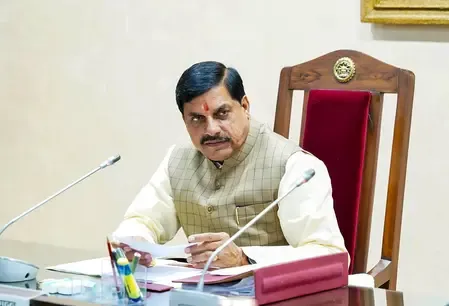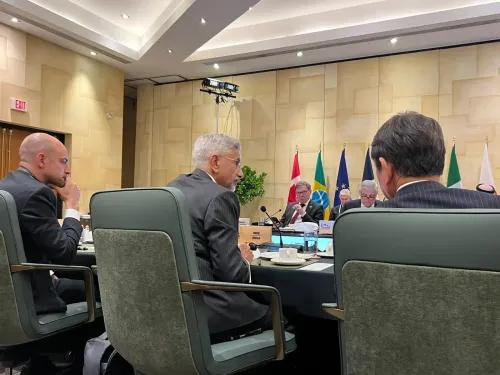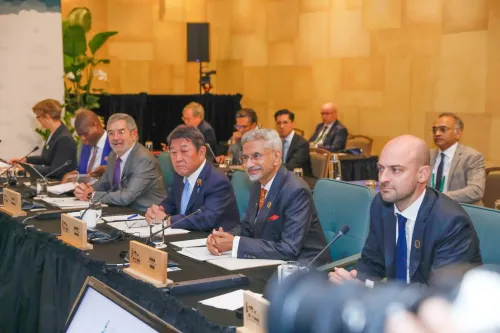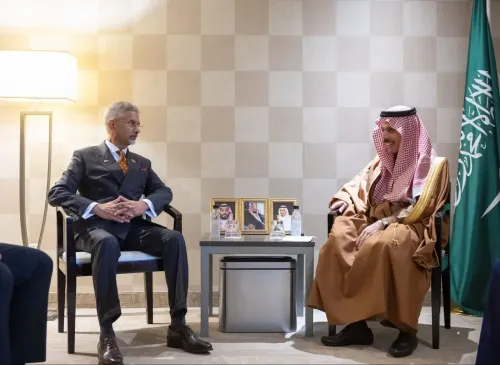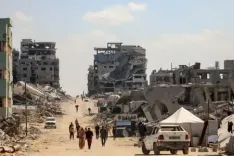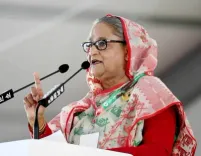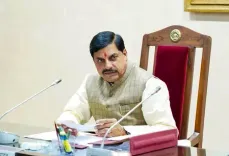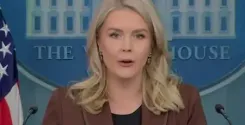Did Nehru Overlook Long-Term Consequences? PM Modi Critiques Congress
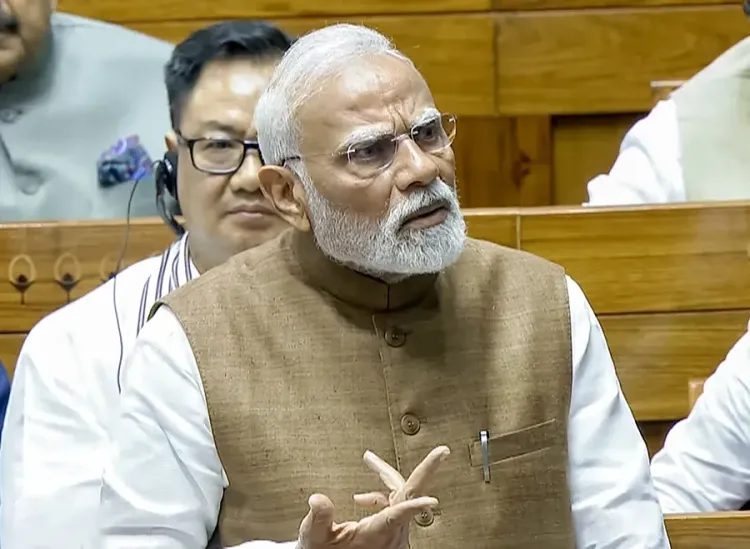
Synopsis
Key Takeaways
- PM Modi critiques Congress for historical diplomatic failures.
- Nehru's Indus Waters Treaty deemed a major blunder.
- Revocation of MFN status reflects a shift in policy.
- Historical military concessions highlighted as missed opportunities.
- Current government aims to reclaim strategic agency.
New Delhi, July 29 (NationPress) Prime Minister Narendra Modi has delivered a comprehensive critique of the Congress party’s past decisions regarding national security, diplomacy, and territorial integrity, labeling them as strategic errors that have jeopardized India's interests for decades.
From the Indus Waters Treaty to the return of Haji Pir Pass, PM Modi asserted that a pattern of diplomatic naivety allowed adversaries to take advantage of India’s generosity, with the public paying the price.
He revisited Prime Minister Nehru’s 1960 signing of the Indus Waters Treaty with Pakistan, deeming it “his biggest blunder.”
Quoting Nehru's remarks to diplomat T.N. Gulati - “I hope this agreement opens the way to solving other problems” - PM Modi implied that Nehru did not anticipate the long-term ramifications.
“He could only see the immediate effect,” PM Modi stated. “However, this agreement left the country trailing behind.”
He highlighted that India has now corrected that mistake, effectively suspending the treaty in favor of farmers, invoking the principle that “blood and water cannot flow together.”
The Prime Minister also criticized Congress’s foreign policy stance during periods of heightened tensions. He pointed out the Most Favored Nation (MFN) status granted to Pakistan in 1996, claiming Congress governments maintained it even after terrorist attacks backed by Pakistan.
“While they sent terrorists to play Holi with blood,” PM Modi expressed, “Congress held mushairas here, hoping for peace.”
He stressed that the current government revoked MFN status, halted visa issuance, and closed the Attari-Wagah border.
PM Modi recalled historical military and territorial concessions; Congress leaders, between 1962 and ’63, allegedly suggested handing over essential regions in Jammu and Kashmir like Poonch and Kishanganga.
The victory at Haji Pir Pass in the 1965 war was reversed through post-war diplomacy. Additionally, in 1971, despite India holding 93,000 Pakistani POWs, Kartarpur Sahib remained in Pakistan.
“With some strategic foresight, we could have altered history,” PM Modi remarked.
“But they missed the opportunity.”
He pointed out further decisions - accepting mediation regarding the Rann of Kutch in 1966, transferring Kachchatheevu Island to Sri Lanka in 1974, and resuming discussions with Pakistan just weeks after the 26/11 Mumbai attacks.
“Even after 26/11, their affection for Pakistan remained steadfast,” PM Modi emphasized. “They did not even expel one diplomat.”
PM Modi also referenced the UPA-era security landscape. He depicted pre-2014 India as a nation engulfed by fear and indecision, contrasting it with what he termed his government’s assertive doctrine — revoking outdated treaties, cracking down on terror networks, and reclaiming strategic agency.
“We’ve halted the one-way traffic of terrorism and misplaced hope,” he stated. “This is the diplomacy they now lecture us about.”
This address signifies a crucial moment in PM Modi’s campaign narrative - a strategic effort to remind voters of India’s historical vulnerabilities while positioning his government as the architect of strategic correction.

